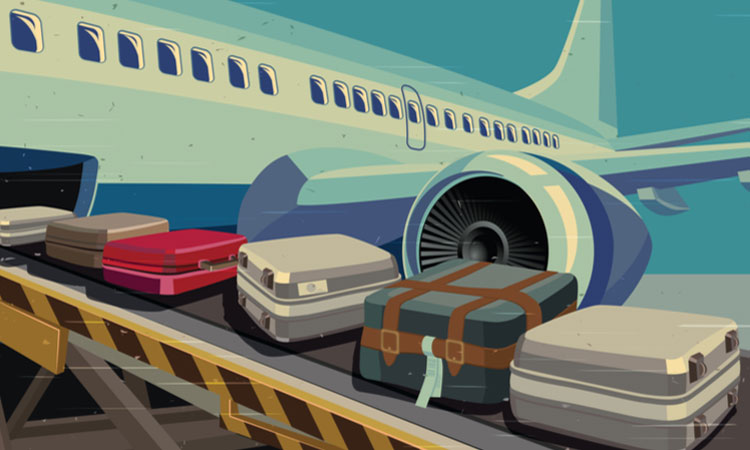Are AI, data and biometrics the key to a sustainable future for baggage?
- Like
- Digg
- Del
- Tumblr
- VKontakte
- Buffer
- Love This
- Odnoklassniki
- Meneame
- Blogger
- Amazon
- Yahoo Mail
- Gmail
- AOL
- Newsvine
- HackerNews
- Evernote
- MySpace
- Mail.ru
- Viadeo
- Line
- Comments
- Yummly
- SMS
- Viber
- Telegram
- Subscribe
- Skype
- Facebook Messenger
- Kakao
- LiveJournal
- Yammer
- Edgar
- Fintel
- Mix
- Instapaper
- Copy Link
Posted: 30 September 2021 | BagsID | No comments yet
Find out from a panel of experts in airline travel and baggage operations in this informative webinar available on demand. A must-see session for airlines, airports, ground handlers, integrators, and others in the travel industry.


Artificial intelligence (AI) and biometrics are improving the way we travel. From passenger facial recognition allowing quicker check-in, security clearance and onboarding, to data-driven automation helping airlines provide more informed dynamic pricing – we’re living in a faster, more efficient, tech-driven world. But can the same be said for baggage? We’ve been using the same basic systems and technology to track and handle passenger luggage for – thermal barcode scan tags and RFID (the “newest” player in the field).
Neither of these systems are sustainable. Each require hardware to be attached to every individual bag and replaced for each new trip. With millions of passengers traversing the globe daily, the amount of paper, ink and energy used, and the landfill waste they create, adds up. In an industry that needs to be cutting costs, not adding them ( per trip), it isn’t sustainable for the bottom line either. Could AI, data and biometrics be the saving grace for this business area, too?
That’s exactly what this panel of experts sought to discuss in International Airport Review’s recent webinar, “AI, data and biometrics: The key to a sustainable future for baggage,” which took place on 8 September 2021. Panellists included: Marlon van der Meer, founder and CEO of BagsID Network; Dr. Michael Kerkloh, former President and CEO of Flughafen Munchen; Peter Feldstein, Director of Airports Transformation at Westjet; Burak Zobi, Performance Manager at Vanderlande; and Sara Branco, Baggage Handling Expert for Geneva Airport.
Van der Meer, who served as co-host for the session along with Dr. Kerkloh, explained the technology behind BagsID and its ability to extract valuable data from every individual bag using photo recognition technology. This data includes but is not limited to size and dimensions, colour, fabric, bag type, and individual characteristics like scratches, dents and stickers, that may not be visible to the human eye -none of which are captured with RFID or barcodes. Better yet, the BagsID solution requires no additional hardware and integrates easily into existing baggage handling systems – with a goal of reducing costs to only $0.01 per bag.
This webinar session looked deeply into the current challenges of baggage tracking and handling and how the industry can work towards a greener future using AI in multiple ways. These challenges included limited airline and airport budgets and whether the investment in a technology to ultimately save costs and reduce carbon footprint is top of mind and a feasible solution for implementation. Would the inertia begin now, or would it be a slower roll-out? What constraints are shackling decision makers to their current systems? When can we see it being used at airports around the globe?
For their answers and opinions on these important questions and more, watch the webinar on demand now.
Related topics
Airside operations, Artificial intelligence (AI), Baggage handling, Big data, Biometrics, Passenger experience and seamless travel, Social responsibility, Sustainability, Sustainable development, Terminal operations
Related airports
Related airlines
Related organisations
Related people
Burak Zobi, Marlon van der Meer, Michael Kerkloh, Peter Feldstein, Sara Branco


















